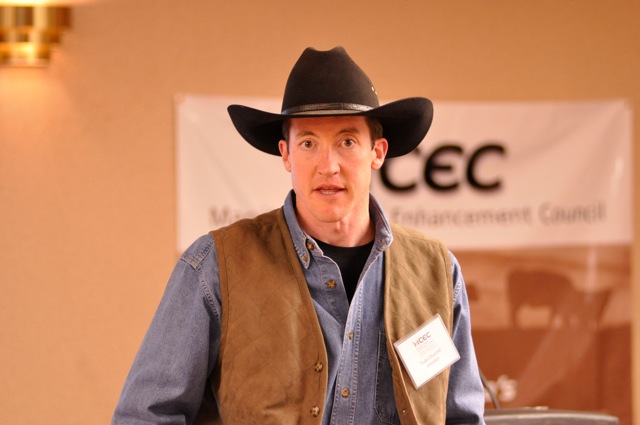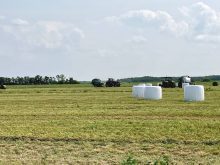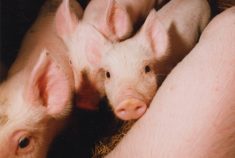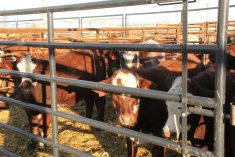A Minnesota-based entrepreneur who has landed a contract supplying grass-finished beef to the retail giant Target says he wants to source at least some of it from Manitoba.
Todd Churchill, the entrepreneur behind Thousand Hills Cattle Company, plans to start bringing in cattle from Manitoba as early as this fall.
“We expect to see some pretty good growth and we’re interested in using some Canadian grass-fed cattle,” said Churchill.
He has been putting beef on Target shelves for four years now, but in the last 12 months, the number of stores where his products are sold has been increased “significantly.”
Last summer, Churchill toured a number of Manitoba ranches and liked what he saw, although in a telephone interview recently, he was tight lipped on the number of cattle he’s looking to source.
Read Also
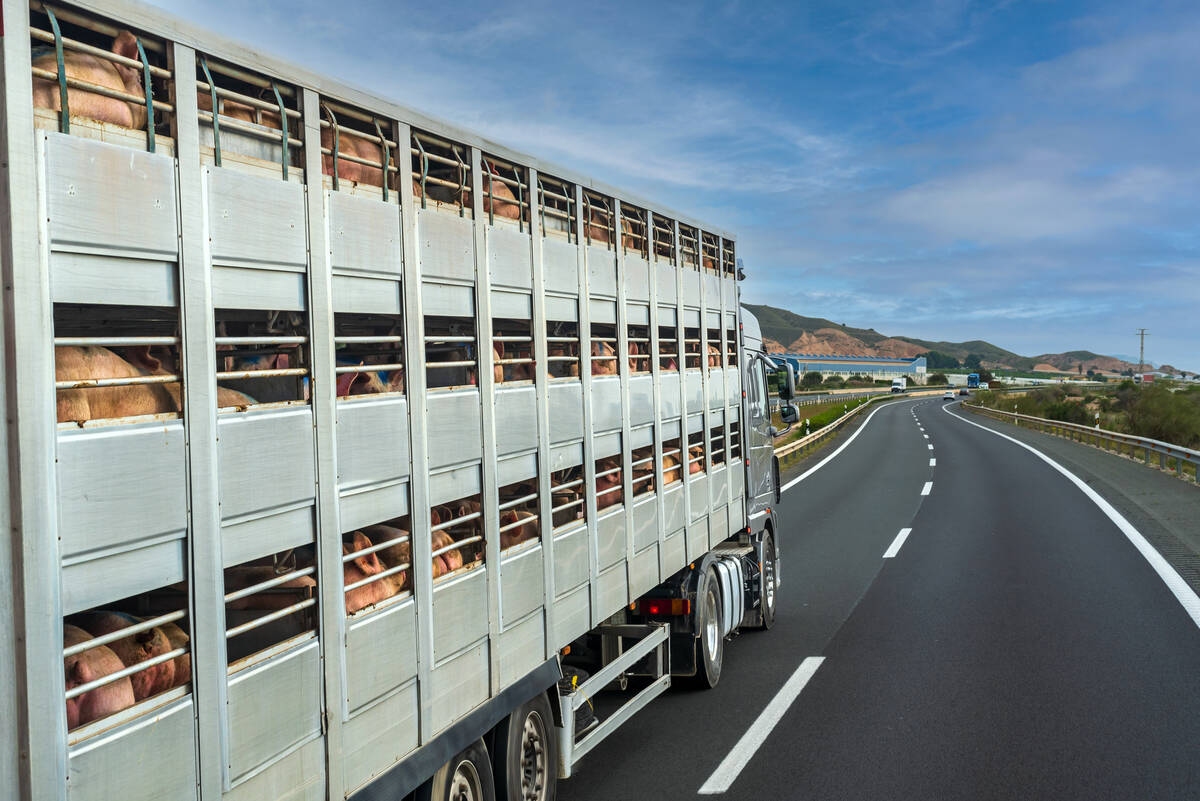
Pig transport stress costs pork sector
Popular livestock trailer designs also increase pig stress during transportation, hitting at meat quality, animal welfare and farm profit, Agriculture and Agri-Food Canada researcher says
Jim Lintott, a past president of the Manitoba Grassfed Beef Association, said that group has been steadily growing its own supply for local niche markets via direct sales to consumers, farmers’ markets and restaurants.
Five years ago, marketing and finding suitable animals for non-grain-based finishing was a struggle, but now he believes that the window of opportunity is as large as the front doors of a Target mega-store.
“This is a really big opportunity, but if it doesn’t get filled, it just disappears,” said Lintott, adding that becoming a part of Thousand Hill’s supply chain could serve as a quick link for local ranchers to grow their niche.
Lintott said Churchill may be looking to source around 50 head per month to start, with the possibility of going to 50 head per week once the supply lines are opened.
Meeting that volume will require more grass-fed beef operators to step up to the plate. Currently, the association’s four members run about 500 to 1,000 head of cattle specially bred for fattening on grass, and only about 10 per cent of their production goes to serve the existing market.
The criteria, which aims to create a top-notch product, is very stringent. Right now, existing producers each market about 40 head per year because they have focused on building their breeding herds.
“That’s the advantage now,” said Lintott. “There’s somebody stepping up to the plate who says I can take all you can produce.”
But at the same time, due to the considerable investment of time and effort on the part of local breeders over the past half-decade, new entrants could tap into that gene pool and get started quickly.
“Now there’s enough happening that you could just go buy that guy’s heifers and that guy’s bull and go to town,” said Lintott.
Churchill is said to be offering a 25 per cent premium over conventional prices, or roughly $2.45 on the hook.
With Target stores recently opening across Canada, Lintott hopes that at some point, Manitoba consumers could also be served via Churchill’s company.
Also, with a Carman-based meat processor set for upgrades to federally inspected status, Lintott sees good potential for jump-starting the local grass-fed beef industry by tapping markets on both sides of the border.
However, recent changes to the country’s mandatory country-of-origin labelling (M-COOL) regulations may have thrown a fresh obstacle in the way of Thousand Hills’ business.
“Right now, we’re waiting for the USDA to figure out what they are going to do about the labelling,” said Churchill.
Under the tightened rules, it’s no longer possible to print “product of U.S. and Canada” on the packaging. That means animals of Canadian origin have to be processed separately, and details listing where it was born, raised and slaughtered must be included.
“That’s so onerous that I can’t believe it’s going to stand. So, I’ve been waiting for them to come up with some sort of alternative rule. But they haven’t done that yet,” said Churchill.
Still, he’s optimistic that the matter will be clarified by fall when he starts bringing in Canadian cattle.





